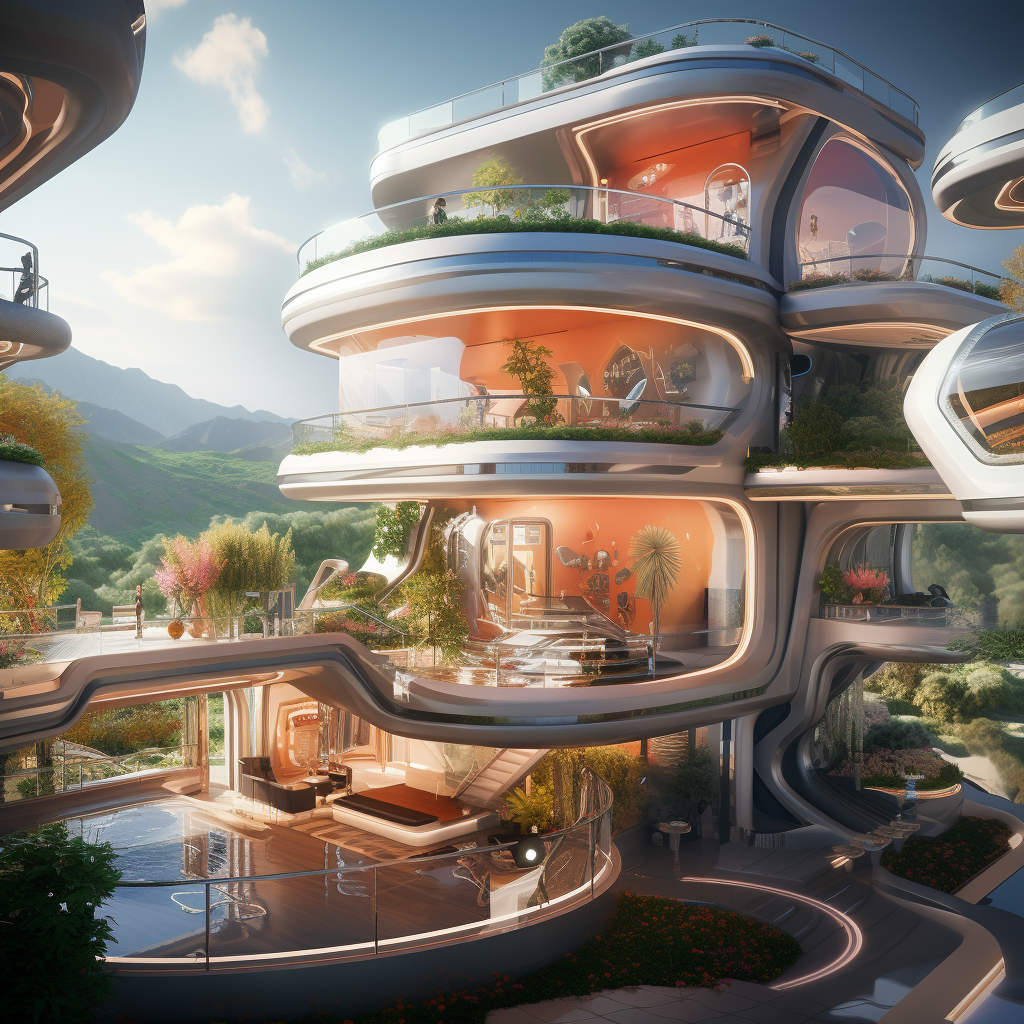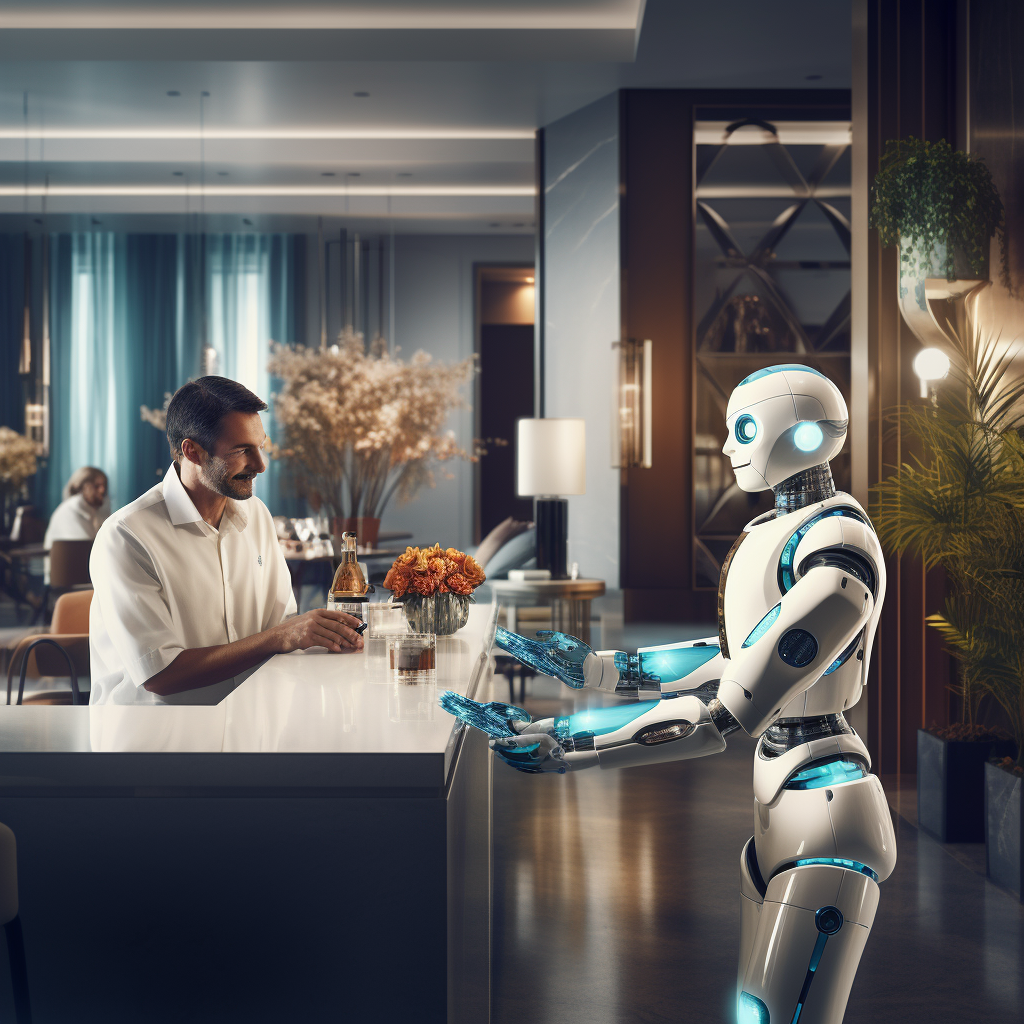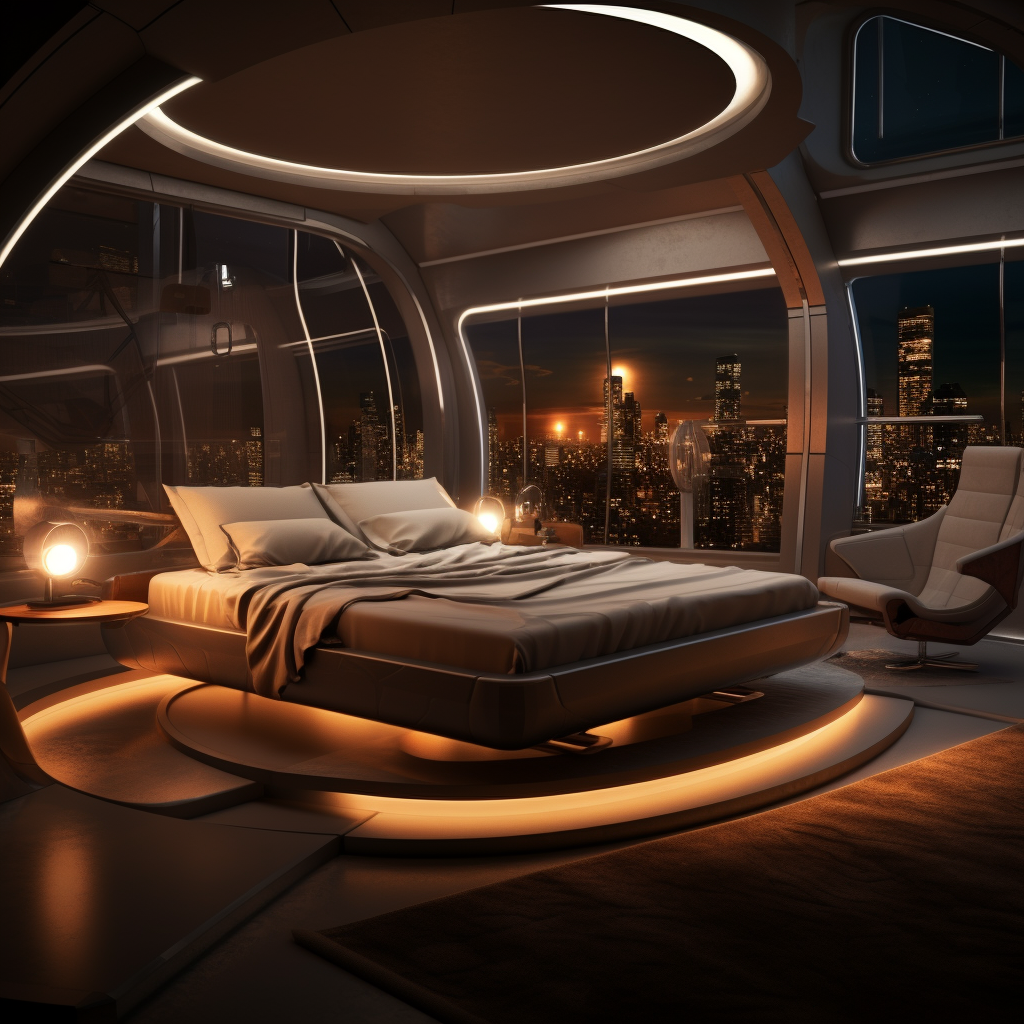 About the Author: Chef Keven A. Lee, commonly known as “Cheven,” stands as a titan in the culinary world, seamlessly melding internationally-inspired cuisine with Hollywood’s glittering panache. Educated at the prestigious Culinary Institute of America and further refined under Michelin-starred chefs in Switzerland, Cheven’s culinary journey has spanned from the iconic Hotel Del Coronado in San Diego to the vibrant energy of EDC, catering for thousands. Settling into Hollywood’s elite scene, he’s orchestrated grand events from the Sundance Film Festival to star-studded movie premieres, all while managing CKL Events catering based in Hollywood, California. This celebrated chef, driven by passion and innovation, remains at the forefront of gastronomic artistry. He wrote this article about The Future of Hospitality to give you a preview of what is to come.
About the Author: Chef Keven A. Lee, commonly known as “Cheven,” stands as a titan in the culinary world, seamlessly melding internationally-inspired cuisine with Hollywood’s glittering panache. Educated at the prestigious Culinary Institute of America and further refined under Michelin-starred chefs in Switzerland, Cheven’s culinary journey has spanned from the iconic Hotel Del Coronado in San Diego to the vibrant energy of EDC, catering for thousands. Settling into Hollywood’s elite scene, he’s orchestrated grand events from the Sundance Film Festival to star-studded movie premieres, all while managing CKL Events catering based in Hollywood, California. This celebrated chef, driven by passion and innovation, remains at the forefront of gastronomic artistry. He wrote this article about The Future of Hospitality to give you a preview of what is to come.
The Future of Hospitality: AI & Hotels
The hospitality industry has been one of the world’s cornerstones for centuries, offering travelers a home away from home. But as we look to the horizon, it’s clear that the future of hospitality is inextricably intertwined with advancements in Artificial Intelligence (AI). From streamlining operations to enhancing guest experiences, AI is redefining the way we think about travel and leisure. Imagine what the most expensive hotel room in the world will be like.
 Hotels have always been a comfort spot for travelers. Now, AI is changing the hotel world. Let’s think about how the best hotel rooms might look in the future.
Hotels have always been a comfort spot for travelers. Now, AI is changing the hotel world. Let’s think about how the best hotel rooms might look in the future.
- Tailored Experiences
AI uses past stays, web searches, and social media to learn about guests. It can suggest activities, change room settings, or recommend meals that fit the guest’s tastes. - Smart Rooms
Many hotels have voice assistants in rooms now. These AI tools can adjust lights, temperatures, and answer questions. Some can even book dinner or spa visits.
- Better Operations
AI helps hotels work smarter. It can save energy, reduce waste, and predict if something might break. This means fewer surprises for guests. - Flexible Prices
AI can change room costs based on things like local events or weather. This helps hotels earn more and stay full. - Better Security
AI can use face scans instead of room keys. It can also watch security cameras to quickly spot problems. - Feedback and Growth
AI can check online reviews and feedback for hotels. This helps them see where they’re doing well or need to improve.
 Challenges with AI in Hotels
Challenges with AI in Hotels
Using AI comes with issues. The big one is privacy. Hotels need to safely handle the data they collect. They must also be ready for AI mistakes. Balancing these risks with the benefits is crucial.
AI Changing Hotel Jobs
AI is changing jobs in hotels. Some tasks might not need people anymore. But new jobs can pop up too. The key is training staff for these changes. A real human touch will always be important in hotels.

Merging AI into Hospitality
The future success of AI in hotels is about blending it smoothly into the guest’s journey. It’s not just about having an AI device in every room. It’s about using AI from booking to leaving. The aim is to make the guest’s stay better without losing the hotel’s heart in the future of hospitality.
The Digital Concierge: AI’s Role
The concept of a concierge isn’t new, but AI is revolutionizing it. Instead of seeking out a hotel staff member for recommendations or queries, guests can now turn to digital assistants. These AI-driven platforms can suggest local tourist attractions, make reservations, or even set up experiences tailored to the guest’s profile. This streamlines the concierge process and offers guests instant responses, enhancing their overall experience.

Eco-friendly Hospitality through AI
Sustainability is a buzzword, and the hospitality industry is keen to demonstrate its commitment. AI assists in this by analyzing data on hotel resource consumption. By predicting peak usage times and adjusting accordingly, hotels can minimize their environmental impact. For instance, using AI to manage power consumption in rooms not only cuts costs but also lessens the hotel’s carbon footprint. The future of hospitality is thriving.
Training and AI Integration
With the introduction of AI, the training needs of hotel staff have evolved. It’s no longer just about understanding guest needs but also about understanding the technology that’s being deployed. Hoteliers are investing in programs to ensure staff are comfortable using AI tools, ensuring that technology complements human services, rather than replaces them.
 Ensuring Equitable AI
Ensuring Equitable AI
There’s a concern about AI perpetuating biases, especially if it’s based on flawed data. For the hospitality industry, it’s crucial that AI tools are equitable. This means ensuring that recommendations, services, and experiences offered to guests are free from unintentional biases. Continuous monitoring and updating of AI algorithms are vital to ensure inclusivity in the future of hospitality.
Beyond the Hotel Walls
While much of the focus is on in-hotel experiences, AI’s potential in hospitality extends beyond. Imagine AI-driven platforms guiding guests on curated city tours or suggesting off-the-beaten-path experiences based on their preferences. As guests explore, AI can also ensure their safety, offering real-time updates on areas to avoid or giving directions. This not only enriches the guest’s travel experience but also extends the hotel’s influence beyond its walls.

Conclusion for The Future of Hospitality
The “future of hospitality” is not a distant dream; it’s unfolding before our eyes. As AI technologies mature and become more ingrained in our daily lives, the hospitality sector stands at the precipice of a revolution.
With a focus on personalization, efficiency, and an ever-evolving guest experience, AI ensures that the world of travel and leisure will never be the same again. As industry professionals and travelers alike, it’s an exciting journey we are all embarking on—and one that promises a future where every stay feels just like coming home.


